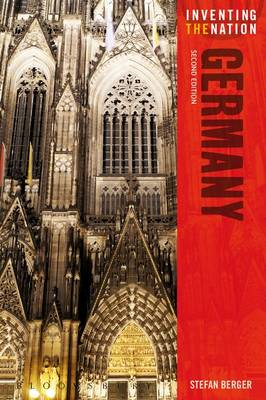Inventing the Nation
1 total work
Fully revised and updated, the new edition of Germany explains the diverse ways in which national identity has been constructed over more than three centuries. It highlights the plurality of contested definitions of 'Germanness'. The themes covered include the struggles between the small-German and the greater-German movements in the 19th century and those between democratic and non-democratic inventions of the nation, the construction of the racial nation under Nazism, economic definitions of the nation, foreigners and 'Germanness', the gendering of the national discourse, the nation as community of memory, the federal nature of German nationalism and the impact of war on the construction of German national identity. Not only does the book use history and historiography, but also literature, art, architecture, music and a range of other disciplines to provide answers to a question which has haunted Germans ever since it was first asked by Ernst Moritz Arndt: 'What is a German's fatherland?'
